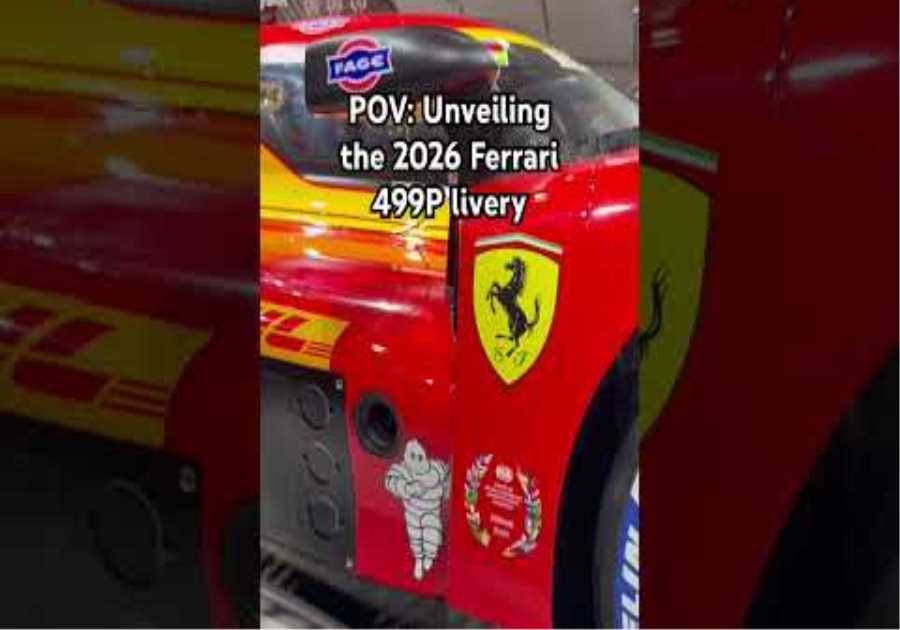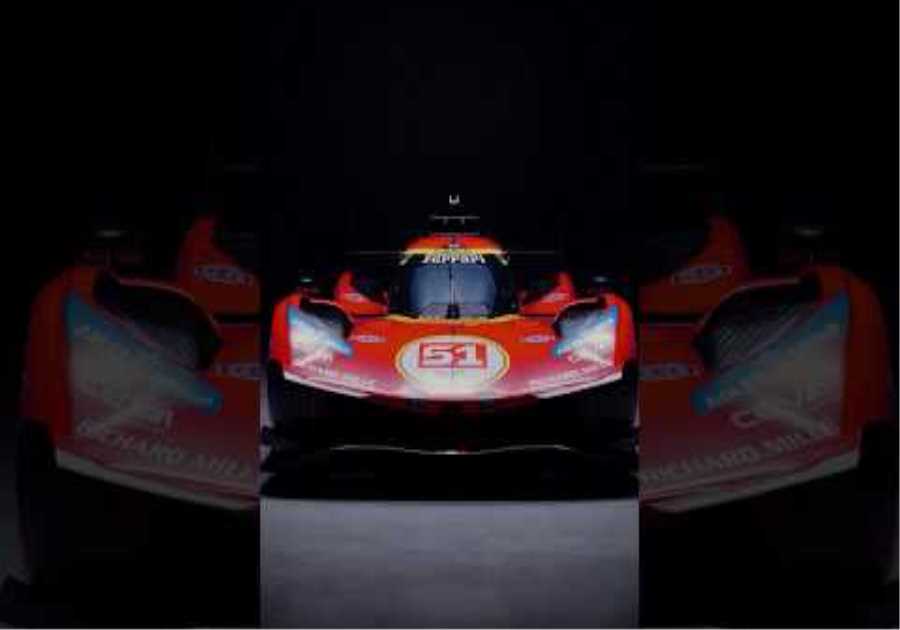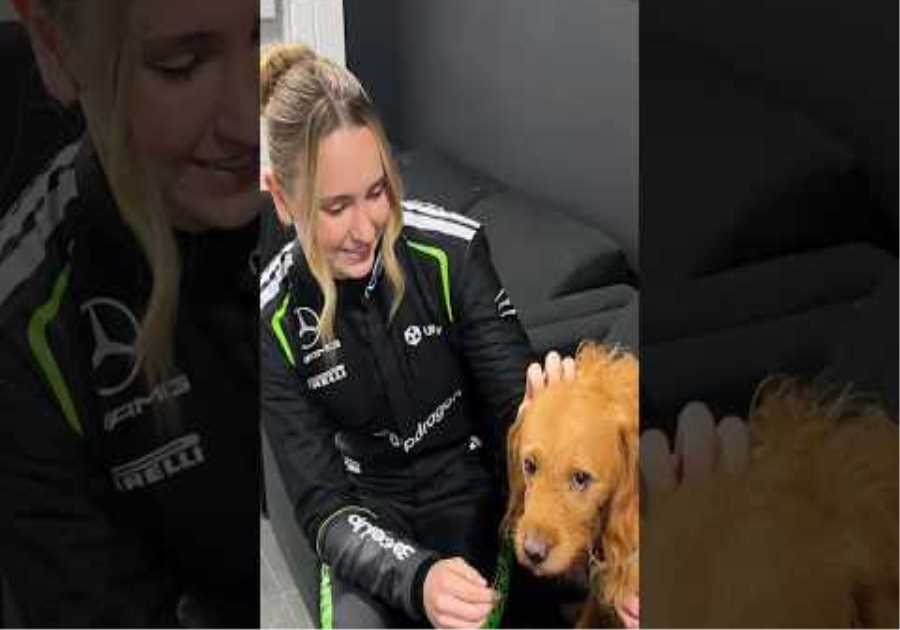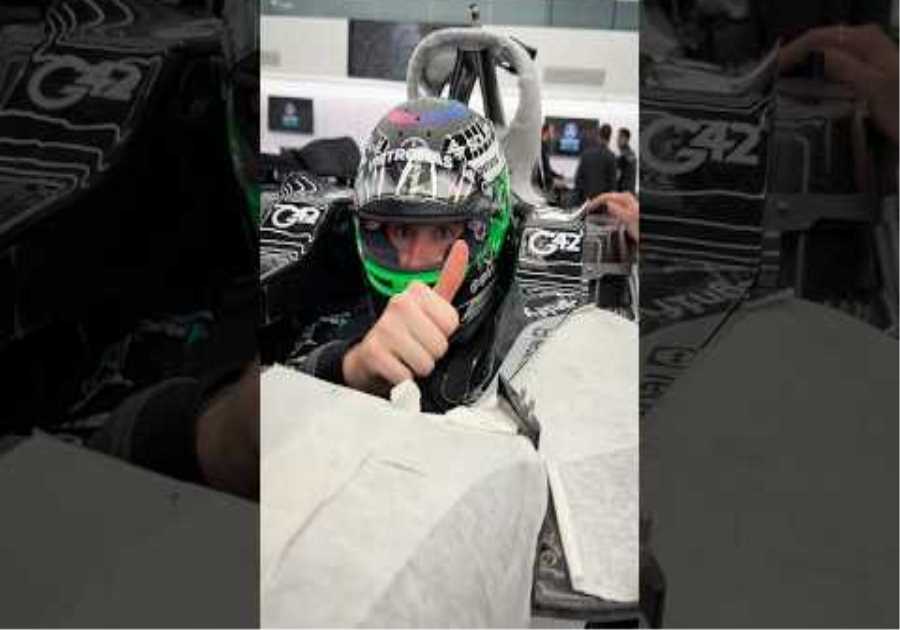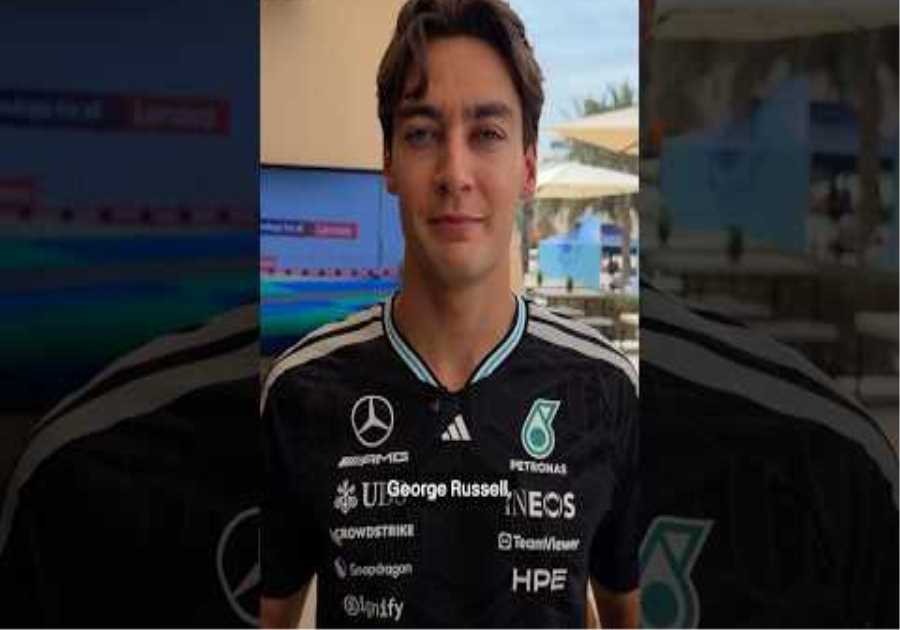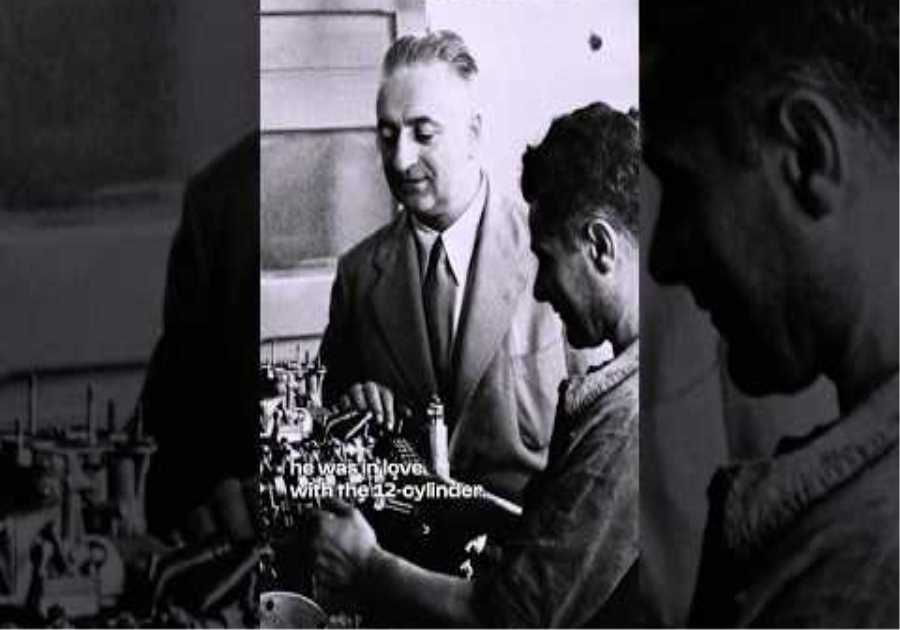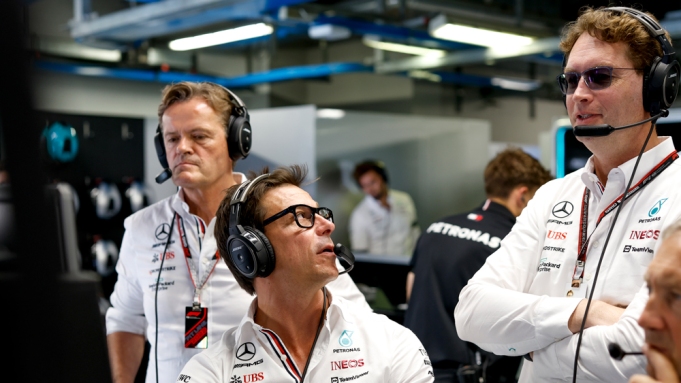
Global domination does not happen often; the number of true empires throughout history are still able to be counted on one’s fingers while they remain the subject of academic study eons after. The world of sports has also had its share of ruling powers, and though their prominence is much shorter lived, the imprint they leave on respective fan-bases keeps the flame of loyal fervor burning for generations. Regardless of athletic discipline, individual or franchise, one team has resoundingly usurped any other claim to that crown in recent years—Formula 1’s Mercedes-AMG Petronas.
Mercedes-Benz had early success in motorsport with its famed “Silver Arrows” race cars piercing through the competition as early as 1934 and continuing on into the 1950s. But the already storied marque’s success became truly epic when, after a hiatus from competition since 1955, it once again entered the premier race series as a constructor in 2010, becoming Mercedes-AMG Petronas two years later. Since 2014, it has won every World Constructors’ Championship through last season. Sure, Ferrari has garnered twice as many, but it has taken 70 years to get them.
Lewis Hamilton is celebrated after winning his seventh Formula One World Drivers’ Championship in 2020.
Ozan Kose/Pool/AFP via Getty Images
Concurrent with the team’s streak, Sir Lewis Hamilton had consecutively earned the World Drivers’ Championship title up until last year, when the deciding final race in Abu Dhabi concluded in controversy, leaving him equal, for now, with Michael Schumacher in the title tally.
The road this season, though, has been uncharacteristically bumpy for the three-pointed star, as new regulations and specifications resulted in Silver Arrows that have not been on point. A few hours after the last qualifying session for the Italian Grand Prix in Monza, Toto Wolff, the team’s principal, and Ola Källenius, the global CEO of Mercedes-Benz, sat down with Robb Report to discuss the end of last season, their current expectations and what continues to drive the dynasty.

Toto Wolff, team principal of Mercedes-AMG Petronas (left) and Ola Källenius, global CEO of Mercedes-Benz.
Mercedes-Benz
First off, walk us through the decision-making process that led to not contesting the Drivers’ Championship last season.
Toto Wolff: Ola and I were 100 percent aligned in our initial reaction of “that didn’t possibly happen; we’re not going to allow this to happen.” We came together in a meeting room with the engineers and a lawyer and discussed the alternatives. The first thing you need to do is protest, to appeal the result, which we did. And then we looked at all angles, and it became pretty clear the same evening that, even if we were to win the case, they would probably struggle to undo the final result. But we left our options open. It was quite a process, because we realized we owed it to Lewis. It was a tough, tough decision.
Ola Källenius: Whereas we felt very strongly that we were in the right, were we going to unravel the whole world championship? Does that even make sense? If we try to fight them, how does that reflect on us? Are we perceived as a sore loser? So we said, “okay, let’s just be rational about this, move on and we fight next season.” It was literally four days after the race when we ultimately made the decision not to uphold the appeal.

The start of the 2021 Abu Dhabi Grand Prix.
Andrea Diodato/NurPhoto via Getty Images
Are you satisfied with the changes the FIA made in the aftermath?
Wolff: I think that, like everything, it can always improve. With any sport, there will always be a team that is not happy with the referee and you just need to accept that. I think the FIA learned a lot from that. It was a controversy that was absolutely not necessary. There’s a new race director in place, and a new president who is definitely a strong advocate for transparency. These are the positives.
Källenius: The FIA made a genuine effort to understand what happened, and changed the structure of running the race. As Toto said, in a split second a referee can misjudge the situation. In some sports, like American football or, now, soccer, the team has challenges and there’s an instant replay. You can’t do that going 180 mph, which means that human judgment in Formula 1 is always going to be there. I don’t think that discussions about calls will ever, ultimately, go away. But the FIA did do a very genuine analysis and have attempted to improve the governance. And more often than not, it works.

Lewis Hamilton at the 2021 Abu Dhabi Grand Prix.
Cristiano Barni ATPImages/Getty Images
As seen with Abu Dhabi and this year’s Dutch Grand Prix, the safety car and virtual safety car have had a major bearing on how certain races have ended. In your opinion, what, if anything, needs to be improved with how they are implemented?
Wolff: With the VC [virtual safety car] and also the normal safety car, you can be on the receiving end or you can benefit from it. Normally, when in the lead of the race, you don’t want it, because you need to decide whether you stop for new tires and lose position, or stay out with the old ones. This was the first race of the year [Dutch Grand Prix] where we were in the lead . . . and the VC comes out. Tough luck.
Källenius: I agree, the concept of the virtual safety car is good. It’s a necessary tool to run a safe race and it was applied correctly in the last race. We were just unlucky because we were in the lead—that’s the bottom line.

A safety car deployed during the 2022 Dutch Grand Prix.
LAT Images for Mercedes-Benz Grand Prix Ltd
What were the regulation changes this season that posed the greatest challenge for the team?
Wolff: The mechanical and aerodynamic basis of the car was changed. The cars generate downforce in a very different area than the years before; now they generate downforce through the floor, and the regulations constrained very much what we were able to do. It was meant to mix the field up and give the smaller teams a chance to come forward, but it actually didn’t change a lot. It’s still the usual suspects in the front, middle and rear—except we moved out of position because we got the physics wrong. It was literally deciding on prioritization of a certain area of the car that we got wrong as a team.
How easy is that to remedy as the season progresses?
Wolff: First of all, it’s a moving target. We’ve had a few moments this year where we thought, “now we understand,” but we didn’t. There seems to be a picture developing of where we got it profoundly wrong, but it’s inherent in the car design and not something we can change during the season.

Mercedes-AMG Petronas team members work on the cars during the weekend of the 2022 Dutch Grand Prix.
Sebastian Kawka for Mercedes-Benz Grand Prix ltd.
Considering the overall success of Mercedes-AMG Petronas, what are key components to a winning team?
Wolff: We have the might of the Mercedes company in the background, with its huge branding power that attracts the right people and retains our talent. We got Lewis Hamilton on board based on the vision Mercedes had back in the day. And then, on the other side, we have the flexibility in the long leash that’s been given by Ola and Mercedes to act as a midsize racing team. That combination is one of the very important contributors.
Källenius: But you still have to make it work. When Toto came on board, as a partner, as an investor and as our new leader of motorsports, the first thing he said was that all our facilities are not where they need to be for a championship-winning team. So you have got to put in the infrastructure, and that was done. He took the guys that were there, assembled a couple of others and then created magic with those people. Other teams have the physical infrastructure as well, but you have got to have that group of people that trust each other, have the right leadership, stay calm and make it happen in any situation of adversity. Those are the ingredients.

From left: Lewis Hamilton, Toto Wolff and George Russell prior to the 2022 Belgian Grand Prix.
Steve Etherington for Mercedes-Benz Grand Prix Ltd.
Toto, what have the team’s uncharacteristic struggles this season taught you on a personal level?
Wolff: We had eight consecutive World Championships, and that hasn’t been done in any other sport, so we pushed the needle quite far. We knew that one day it was going to be difficult. All of these years we’ve been preaching about our values, how we would react when it happens and how we would continue to empower and trust. But when you are in that situation, it’s actually different.
Personally, I’m actively learning to look at myself from the outside and asking if I’m staying true to what I’ve been preaching all those years. I’m very emotional and there are certain pressures the team feels with me getting involved in many areas. Every day I need to be introspective and ask myself if I’m doing the right thing here. But in the end, I need to stay authentic to who I am and what I am. I will be able to write more about what happened this year than all the other eight.

Toto Wolff during a practice session prior to the 2022 Austrian Grand Prix.
Clive Rose/Getty Images
Ola, how does your skillset complement that of Toto’s when it comes to the team?
Källenius: In the beginning, Toto reminded us that we were sitting on a sport franchise, like a Champions League football club in Europe. Whereas Toto has done the heavy lifting and unearthed the value of what this team is, those aspects from the corporate side, whether it’s working with sponsors or creating business relationships, are where I’ve been able to pitch in.
Wolff: Ola runs a multinational company but has a profound understanding of motor racing and Formula 1—he was there before I was. Sometimes, when I need to make decisions, and I question or doubt, I have a sparring partner in Ola. And if I need a second opinion, I know I’m going to get a competent answer. That’s important for me.

Ola Källenius speaks at the opening of a new Mercedes assembly line in 2020.
Lennart Preiss/Getty Images
Do you communicate with each other during races?
Källenius: We do, but try not to overdo it. The passion gets the better of me. We have one little group thread, an open forum, but sometimes I just send a direct message to Toto giving him unsolicited advice that he carefully chooses to ether listen to or not listen to.
Have you been surprised by George Russell’s consistency this season?
Wolff: He was a very, very good kid in the Junior Formula. He won his rookie season in F4, his rookie season in F3, his rookie season in F2 and he did a brilliant job at Williams. So we knew about his talent and way of working diligently, then realized very early that he can be a world champion. We are not benchmarking him for that directly this year, because he’s driving a product that’s not good enough.

George Russell with spoils from his third-place finish at the 2022 Italian Grand Prix.
Sebastian Kawka for Mercedes-Benz Grand Prix ltd.
When it comes to identifying a rising talent, what are some of the intangibles that you look for in a driver?
Wolff: You can clearly see that there is a nature thing—a genetic predisposition and cognitive ability. But it needs to be nurtured. Nature alone doesn’t work. Nurture alone doesn’t work. You have these exceptional talents that come up from time to time . . . [Editor’s note: At this point in the interview, Lewis Hamilton walks in unexpectedly]. That’s an exceptional talent [gesturing to Hamilton]. Lewis, we were asked what we look for in a driver at the early stage of development.
Hamilton: When you jot it down, let me know.
Källenius: The first time I met Lewis was when he was 15 or 16 years old, maybe even before that. I remember talking to him briefly and thinking, “this guy has it.”
Hamilton: What’s important, also, is that it takes many people to manifest. You guys told me about that, believed it was possible and created the opportunity. Obviously, as an individual, I was trying to manifest getting to Formula 1 and being at the top, but it has taken all of us being connected. Without the support of Mercedes, I would not be here today.
Wolff: Determination.
Källenius: Yes, determination. Talent alone is not going to get you there.

Lewis Hamilton during a Friday practice session before the 2022 Italian Grand Prix.
LAT Images for Mercedes-Benz Grand Prix Ltd
How do you balance keeping your drivers on that competitive edge while also building camaraderie within the team?
Wolff: Fundamentally, teammates are direct competitors. You need to accept that these two will sometimes have diverse objectives. If a driver is intelligent and knows about a long-term future with a team, generally, they can tame the lion. But there will always be situations where it comes out. You can’t expect a lion in the car and a puppy outside. This is a natural tension, or pressure point, that’s just part of the job.
Källenius: The first great racer to realize that he needed to beat his teammate was [Juan Manuel] Fangio. He was the first guy that came up with the concept that each driver should have his own mechanics crew, as there are two competitions going on—one against everybody else, and one against your teammate. That concept from 1954, or thereabout, is still true today. You still have two pit crews and two race engineers totally focused on making their guy win. You have to have that tension.

Lewis Hamilton and George Russell on the podium together at the 2022 French Grand Prix.
LAT Images for Mercedes-Benz Grand Prix Ltd
How has the business model of Formula 1 teams, and their perceived value, changed in recent years?
Källenius: For us, the brand building and strong brand messaging is still the core commercial value of what we’re doing here. But Toto had a very strong belief that this needs to be a franchise and have franchise value. I don’t think he would have invested some of his own money if he didn’t think it could yield a return. Here we are, 10-plus years later, and he proved it. Of course, a lot happened to the sport with the growing popularity and Liberty Media’s further expansion into the US, which we love. We have now put teams where they can have revenues above their costs—just a small detail if you want to run a business with a financial future. We have a double dividend now; the brand value plus a financial dividend, which had been unheard of in Formula 1. It’s a game changer, and Toto is one of the leaders that has pulled the whole grid with him.
Wolff: Because the sport is growing from strength to strength, our top-line revenue is growing strong. And because of the cost cap that was implemented, we have a stable cost base and good visibility of future profits. When McLaren or Ferrari gets a sponsorship pitch, I’m actually happy about that, because all of us need to grow together.

George Russell competing in the Miami Grand Prix, a new race introduced for the 2022 season.
Mark Thompson/Getty Images
Do you think the internal combustion engine will always be a part of Formula 1?
Källenius: We talk about this a lot. There’s no doubt we need to go CO2 neutral. It’s not even a discussion. We have made a clear plan for Mercedes as a whole, as has the Formula 1 team. We’ve got to decarbonize, full stop. But how do you keep the speed and spectacle of the greatest racing series and go zero emission? The energy density of batteries is not yet at the point where you can do that. One day they probably will be, but we don’t know when that day is. For 2026, we have decided that the relevance of the electric piece will grow and, for combustion, Formula 1 will be producing CO2-free fuels.
Wolff: Formula 1’s aim is to be the fastest laboratory in the world and develop a high-performance fuel that’s 100 percent sustainable and available at the pump station for your road car. If we can be pioneers in developing such a fuel and showcase it on the racetrack, that is part of the energy transition. In my opinion, whenever batteries are in a position where we can properly race with them, Formula 1 is probably going to go electric.
Editor’s note: Round 17 of the 2022 Formula 1 season will be the Singapore Grand Prix on October 2 at 8 a.m. ET.

